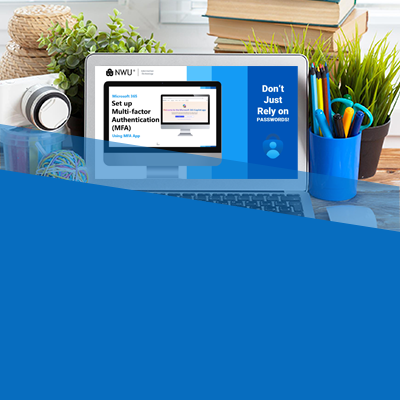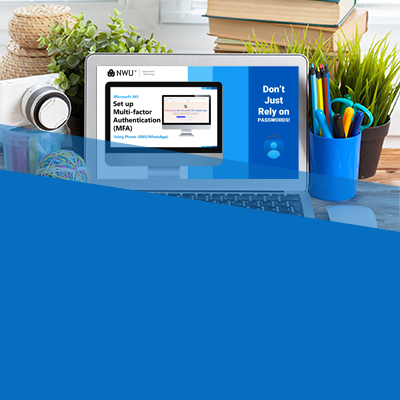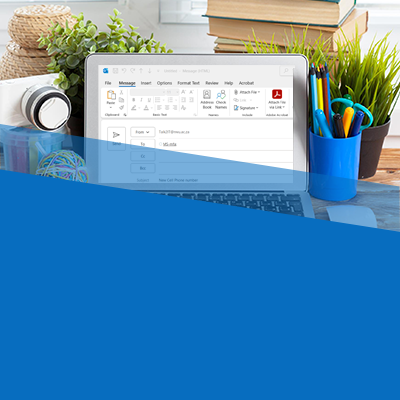Microsoft has already started gradually enforcing MS 365 MFA worldwide for the Microsoft 365 cloud environment from 15 October 2024. All students will be required to do MS 365 MFA by January 2025. Staff will be required to do Multi-Factor Authentication (MFA) by March 2025 after which Microsoft will enforce this security measure for all NWU staff accounts.
This change is part of the Secure Future Initiative, which aims to strengthen security and prevent data breaches.
MFA is a security method commonly required among cloud service providers and requires users to provide two or more pieces of evidence to verify your NWU MS 365 account. It adds an extra layer of protection to the standard username and password authentication.
Currently the NWU user community only use a password to authenticate to access the MS 365 environment and it leaves an insecure vector for attack. If the password is weak or has been exposed elsewhere, an attacker could be using it to gain access. When you require a second form of authentication, security is increased because this additional factor isn't something that's easy for an attacker to obtain or duplicate.











